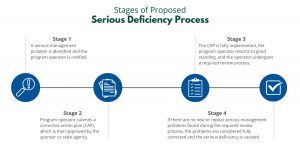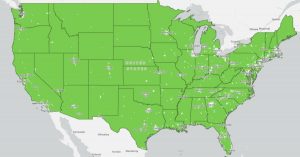Policy
State Agency Review Requirements
USDA released a memo that provides additional information regarding the provisions related to the frequency and number of reviews for State Agencies monitoring the CACFP.
Read MoreProposed Rule: Serious Deficiency Process in the CACFP & SFSP
USDA released a proposed rule for updating the Serious Deficiency process in the CACFP and SFSP. The rule proposes updates that would redefines serious deficiency, allows for full correction and removal of serious deficiencies, and extends the process to CACFP unaffiliated centers and SFSP sponsors.
Read MoreNon-Congregate Meal Service in Rural Areas Questions and Answers
USDA released guidance updating their Question and Answer document for rural non-congregate summer meals. Read the updated guidance.
Read MoreState agency Monitoring in the SFSP
USDA released guidance to clarify the new criteria States must consider when determining with SFSP sites require pre-approval visits. Read the guidance.
Read MoreCACFP Sponsoring Organizations: Vital to Getting Nutritious Meals to Children
Family child care homes, who are vital to the child care system, especially in rural areas, could lose access to nutritious meals in some states due to the decline in sponsoring organizations.
Read MoreFY 2024 Reallocation of SAE Funds in Child Nutrition Programs
USDA released a memo providing information state agencies need to conduct the FY 2024 reallocation of State Administrative Expense (SAE) funds in the child nutrition programs (CNPs).
Read MoreUpdated Instructions for the SAE Recovery Process and SAE Financial Status Report
USDA released CACFP guidance for state agencies on changes to SAE funds and how they are tracked and reported.
Read MoreSFSP 2024 Reimbursement Rates
The USDA has released the SFSP reimbursement rates for 2024.
Read MoreRural Designations in the Summer Meal Programs
USDA released a guidance memo explaining the revised definition of rural created in the interim final rule on the SFSP non-congregate option.
Read MoreJanuary Policy Update
Since our last policy updated, there has been new legislation introduced, waivers approved, guidance released, as well as an Interim Final Rule for SFSP rural, non-congregate feeding. There have also been multiple research papers published regarding the CACFP. Check out the recent policy updates below!
Read More









